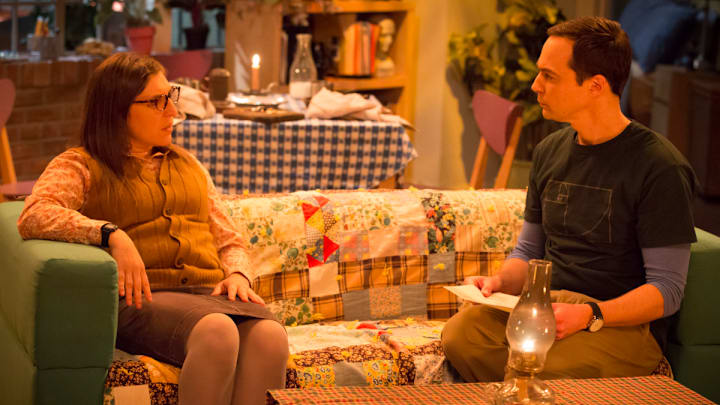The Big Bang Theory

This sitcom worked as a fan-favorite for twelve years, even spawning its own spinoff in Young Sheldon. The sitcom followed bright-minded scientists and their pop-culture-loving friend. But, for as academically bright and as quick-witted as this series could be, continuity was not always its best friend.
Certain things became a staple of the show, such as Sheldon's declarations of what constituted as "Sheldon's Spot," but other elements, such as Amy's initial characterization, became lost in the shuffle and altered to fit a new narrative.
When Amy Farrah-Fowler was originally introduced, she was originally written to be portrayed as the female equivalent of Sheldon. Just like Sheldon, she spoke in a specific verbal manner, was tunnel-vision-focused on her scientific work, and had absolutely no interest in pursuing any form of romantic or sexual endeavors.
As time went on, and The Big Bang Theory potentially realized the growth of what they were capable of experiencing, Amy's character changed. It can, to a degree, be pointed to "The Alien Parasite Hypothesis" in season four, when Amy exhibits signs of arousal toward Penny's ex-boyfriend Zack.
Given how early this appears in Amy's overall appearance on the series, taking place in the fourth season's tenth episode, perhaps the writers were already wanting to move on from having two identical portrayed characters, and wanted to broaden Amy's scope a bit for the requirement of character development and to show more depth to Sheldon.
The plan does work, as The Big Bang Theory goes on to portray an interesting and intimate look of what a romantic relationship looks like for Sheldon Cooper, and how Sheldon and Amy's relationship is shown to be strong enough for Amy to recognize that she would rather be with Sheldon with no physical intimacy, than have a physical relationship with another man. Meanwhile, Sheldon's relationship with Amy opens him up as well and allows him to see the value of having a life partner and what it means to fall in love.
Altering Amy's personality also made her have a better understanding in social situations, something that Sheldon struggled with the entire show. Amy's development here could have either been because the series needed to alter the character so that she and Sheldon were no longer exactly the same, as their differences is part of what made their romance work.
Other inconsistencies featured in the series include how Sheldon's descriptions of his father are also perfectly matched up throughout The Big Bang Theory but are completely altered throughout Young Sheldon and the story and timeline of when the elevator in the apartment building breaks.
